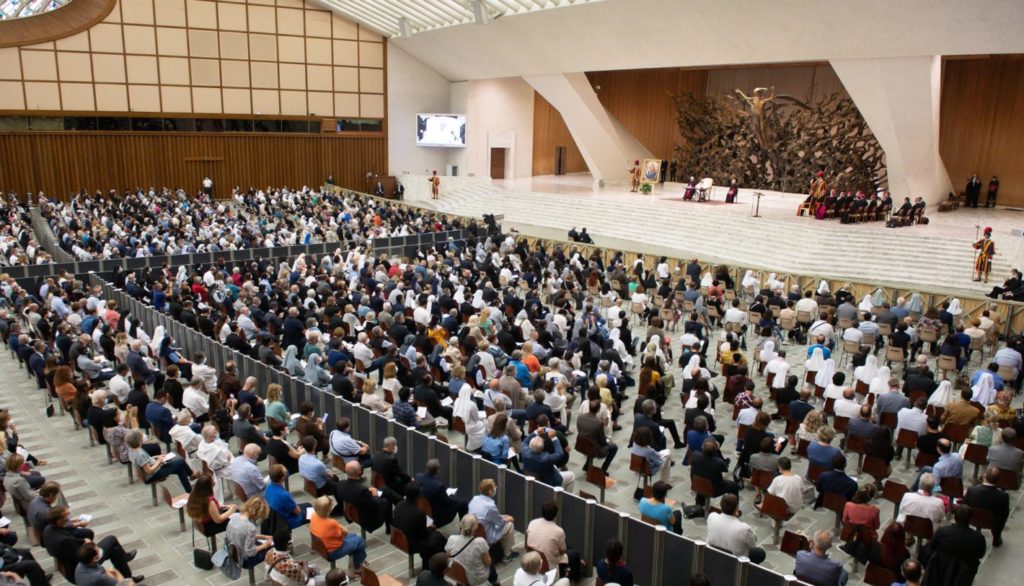"It is very important that the diocese of Rome commits itself with conviction to this path. It would be a shame if the Pope's diocese did not commit to it, wouldn't it? A shame for the Pope and also for you." A few weeks away from the beginning of the synodal journey that will involve the whole Church for the next two years, and which will begin with a consultation in all the dioceses, Pope Francis has "gathered" the faithful of his particular Church to offer some basic - and also profound - indications that should characterize this journey. Indications that inevitably, precisely because he is Pope and Bishop of Rome, he gives to all the dioceses of the world.
The key is to listen
The key word-after "walking together"-is undoubtedly "listening," because everyone is and must be a protagonist. It is necessary to allow oneself to be moved by an "interior restlessness" that makes room for docility to the Holy Spirit, the protagonist par excellence. The Pope points to the Acts of the Apostles as the vade mecum of this path, from which to draw emblematic examples, showing that "the Word of God walks with us," but also that when there are problems, they are discussed and debated together, in a synodal way.
In fact, we should not be afraid of "different visions and expectations," as also happened to the first Christians or to the first Council, but make sure to nourish "deep visions, broad visions, long visions." Because "God sees far, God is not in a hurry," and rigidity is a sin "against God's patience" and his sovereignty, Pope Francis warned.
The "sensus fidei
The diocesan phase of the synodal process is therefore very important because it listens to the "sensus fidei infallibile in credendo". There will undoubtedly be resistance, especially from those who imagine a Church "rigidly divided between leaders and subordinates, between those who teach and those who must learn," but "God likes to overturn positions." This path, therefore, rather than verticality, must be distinguished by horizontality: "the synodal Church restores the horizon from which the sun rises Christ".
Listening to the "sensus fidei" also means, for Pope Francis, reaching out to the marginalized, the poor, the desperate "chosen as a sacrament of Christ". It means calling them, spending time with them, "listening not to what they say but to what they feel", possibly receiving insults... This is so because "the Synod is up to the task, it includes everyone". And because, by including the miserable, the discarded, we also learn to "take charge of our own miseries".
Open doors and windows
Obviously, this is also true for parishes, which are invited to leave their doors and windows open, without taking into account only those who attend or think like us - "who will be the 3,4 or 5%, no more" -; on the contrary, it is necessary to let ourselves be challenged by those who are far away, to let ourselves be overwhelmed by dialogue, without fear, with full confidence in the Spirit who is the one who leads: "do not be disappointed, prepare for surprises", the Holy Father reiterated.
"I have come here to encourage you to take this synodal process seriously," he said in conclusion, because "the Holy Spirit needs us." Listen to him by listening to yourselves. Leave no one out or behind." This will be the right attitude that "will do good to the Diocese of Rome and to the whole Church." A Church that in this time of pandemic becomes a "sacrament of care" for the whole world.








